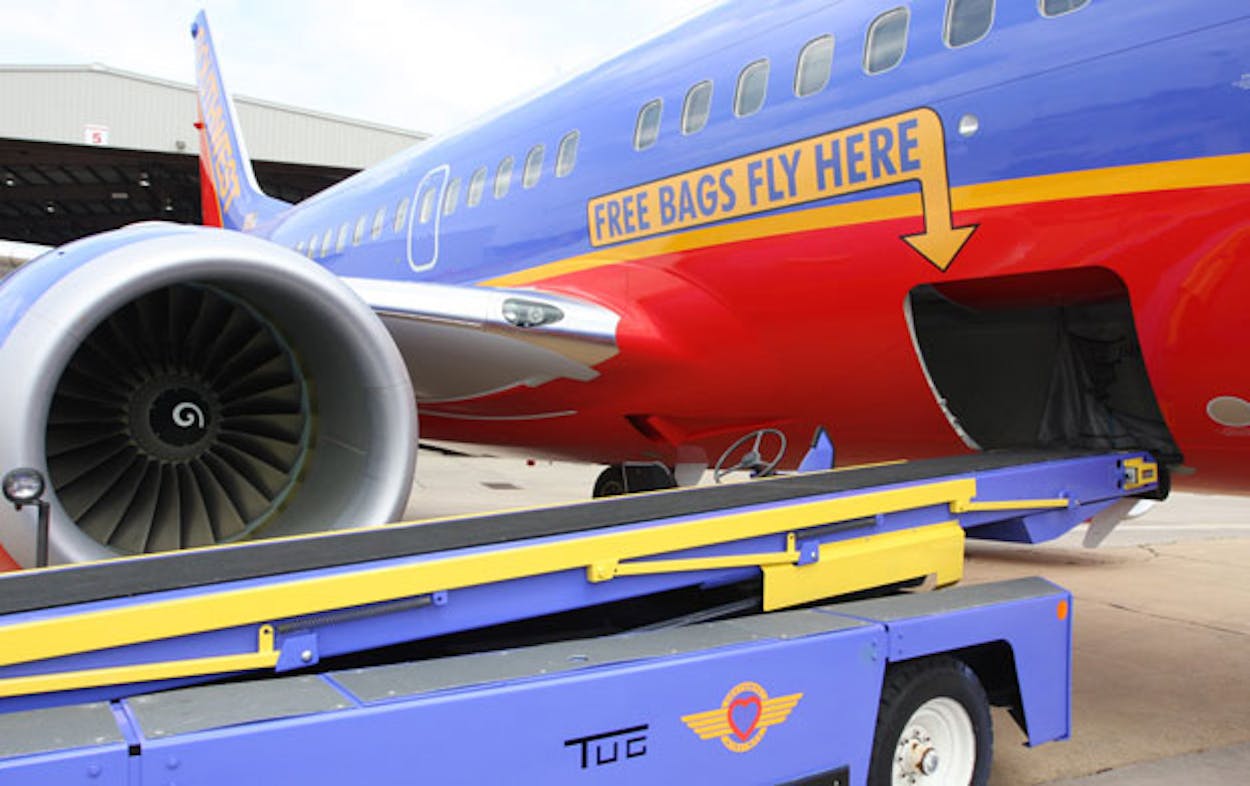Southwest Airlines inched a little closer to all other airlines Friday with the announcement that it would start charging fees for no-shows and for third bags.
These moves are intended to raise revenue for the company, and the changes to bag fees could bring in $100 million each year. Southwest hopes to increase revenue by $1.3 billion in 2013, the AP reported. The airline’s 2012 revenue is expected to be $17.5 billion.
A third bag or oversize luggage will now cost $75 to check. The fee customers pay for the privilege of early boarding will also increase, from $10 to $12.50.
Southwest has touted its “bags fly free” policy as one of the things that sets it apart from other airlines. (In 2010, the company went as far as to adorn 50 of its aircraft with decals that said “Free Bags Fly Here,” pointing to cargo hold.)
“Southwest has long billed itself as the airline that doesn’t ‘nickel-and-dime’ passengers with extra fees like many of its competitors. The world’s largest airlines are expected to collect $36.1 billion in passenger fees in 2012—including charges to check bags, buy food and drinks and use onboard wireless Internet,” Hugo Martin reported in the Los Angeles Times.
But some of the airline’s most popular policies are staying in place: a flier’s first two bags are still free and there are still not fees attached to changing a flight after purchasing a ticket.
The company does not expect a backlash to charging no-shows a fee. “By our research, customers understand that we all could benefit—customers and the company—from the opportunity to resell a seat,” CEO Gary Kelly told AP. “Once the airplane takes off and (a seat) is empty, we can’t ever reclaim that.”
Southwest Chief Commercial Officer Bob Jordan told investors the move will “add ancillary revenue and promote customer behavior that allows us to re-sell the open seat prior to departure,” Consumerist reported.
Bloomberg BusinessWeek summed up the changes this way on Twitter:
Hate bag fees? For $100 million a year, Southwest Airlines learned to love them | buswk.co/Z65V8X
— Businessweek (@BW) December 15, 2012
To learn more about Southwest’s culture and how it transformed itself from a “scrappy, lovable, cut-rate” airline to the nation’s largest carrier, revisit S.C. Gwynne’s March 2012 Texas Monthly piece.







